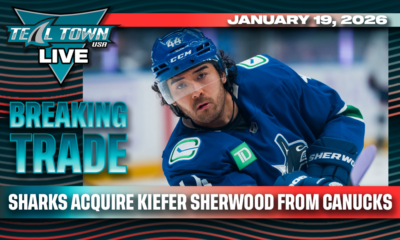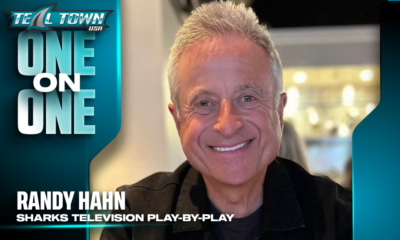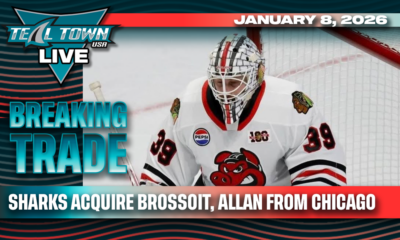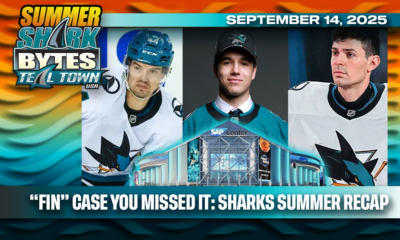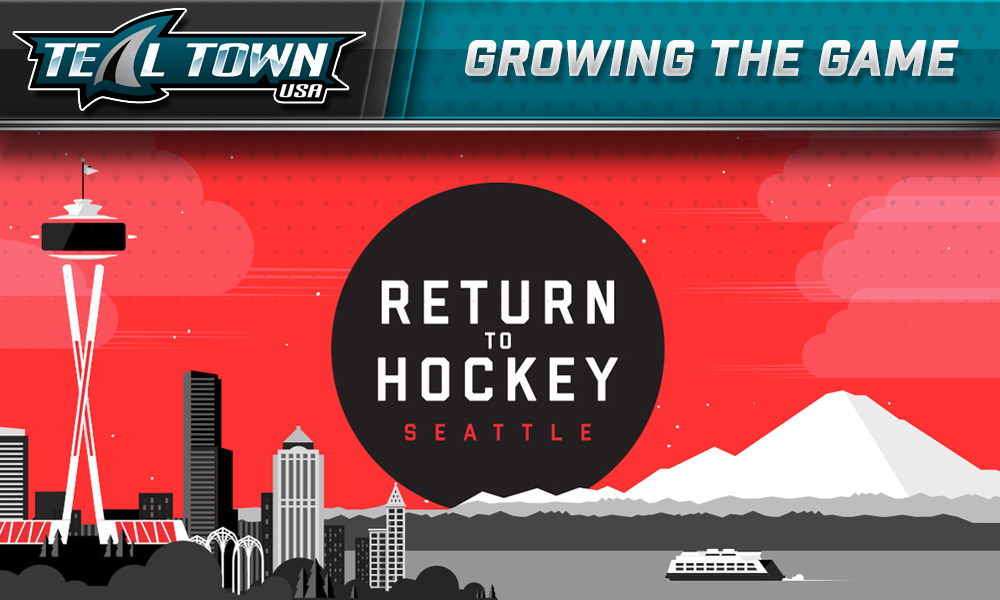
Throughout the 2018-19 season, we will be looking at different ways the National Hockey League has attempted to grow the game of hockey, as well as other ways of growing the sport that could be beneficial.
Today, we talk about the expansion and relocation of NHL teams.
Seattle Expansion
Earlier this season, the NHL Board of Governors gave the green light for Seattle to have the league’s 32nd hockey team. The vote came one year after Vegas’ inaugural season at T-Mobile Arena. These recent expansions are the result of the National Hockey League’s continued efforts to grow the game in North America, specifically in the United States. Of course, you could argue that Seattle already has a hockey presence with two junior hockey clubs, the Seattle Thunderbirds and the Everett Silvertips, Everett being just a half hour drive to Seattle. However, just for the sake of argument and this series, we’ll include Seattle anyway with that in mind.
Brief History of Expansion and Relocation
At some point, long after the NHL started out with four teams (Montreal Canadiens, Toronto, Ottawa, and the defunct Montreal Wanderers), there ended up being six teams. Specifically, this was during the World War II era. Yup, you guessed it! I’m talking about the Original Six! From 1942 onto the next 25 seasons, the league would consist of the Boston Bruins, Chicago Blackhawks, Detroit Red Wings, Montreal Canadiens, New York Rangers, and Toronto Maple Leafs.
The rest of the expansion timeline goes as follows, courtesy of NHL.com:
1967: Six teams were added, including California Seals (later renamed the Oakland Seals and then the California Golden Seals), Los Angeles Kings, Minnesota North Stars (now the Dallas Stars), Philadelphia Flyers, Pittsburgh Penguins and St. Louis Blues. It was the largest expansion in the history of pro sports, and brought the NHL from 6 to 12 teams.
1970: The NHL was expanded to 14 teams with the addition of the Buffalo Sabres and Vancouver Canucks. Vancouver had previously been home to the Millionaires who won the Stanley Cup in 1915, two years before the NHL was founded.
1972: The New York metropolitan area got a little more love with a second NHL team on Long Island. They would become known as the New York Islanders, based in Uniondale, N.Y. The Atlanta Flames also made their brief appearance in Atlanta, Georgia (we’ll have more on another former Atlanta team later) before moving to Calgary in 1980 (spoiler alert!)
1974: Two more teams were added to the NHL, those teams being the defending Stanley Cup Champion Washington Capitals and the Kansas City Scouts (who lasted two years in Kansas before subsequently moving to Denver to become the Colorado Rockies, and then moved to a more permanent place in New Jersey in 1982 to become the New Jersey Devils).
1978: Speaking of teams that no longer exist, the Cleveland Barons/California Golden Seals merged with the Minnesota North Stars, reducing the number of teams in the NHL to 17. The North Stars then relocated to Dallas a couple years later in 1993 and become known simply as the Stars.
1979: Four teams came over to the National Hockey League from the now-defunct World Hockey Association. They were the Edmonton Oilers, Hartford Whalers, Quebec Nordiques and Winnipeg Jets, which brought the league to 21 teams. The Nordiques moved to Denver in 1995 and were renamed the Colorado Avalanche. The Jets moved to Phoenix in 1996 and became the Phoenix (now Arizona) Coyotes, and the Whalers relocated to Carolina in 1997 to become the Carolina Hurricanes in Raleigh.
1991: Diehard Sharks fans would know the significance of this year in expansion history. Your San Jose Sharks were added into the NHL (thanks in large part to Sharks TV play-by-play voice Randy Hahn and original owner, George Gund III), ushering a new era of NHL expansion a dozen years later and thus bringing the total number of teams in the league to 22.
1992: The Ottawa Senators and Tampa Bay Lightning, Florida’s first-ever NHL franchise, were added into the league.
1993: The total number of teams climbed to 26 with the additions of the Florida Panthers (based in the Miami metropolitan area) and the Mighty Ducks of Anaheim (now just known as the Anaheim Ducks).
1998: Five years later, the number of teams climbed to 27 with the Nashville Predators joining the league.
1999: 19 years after the Flames left Atlanta, the city then got another hockey team in the Atlanta Thrashers. Unfortunately, Atlanta can’t have nice things when it comes to hockey, as the franchise relocated to Winnipeg in 2011 and became the Jets 2.0.
2000: Both Columbus, Ohio and St. Paul, Minnesota got hockey teams as the Columbus Blue Jackets and Minnesota Wild joined the NHL, respectively. By this point, there were 30 teams in the National Hockey League.
2016: 6 years later, as alluded to earlier, the city of Las Vegas, NV was granted their first NHL franchise and first major professional sports team, known as the Vegas Golden Knights. The total number of teams now stands at 31.
Thoughts on the Seattle Expansion & What’s Next for the NHL in the Expansion/Relocation Process
I’m honestly happy that the NHL decided to give the green light to an expansion team in Seattle. Like I said, I get that hockey has already existed in the city. Thus, you’re not really “growing the game” in a place that’s already been exposed to hockey. That said, if it gives the game more exposure, I’m all for it! We already have sort of an idea of what Seattle’s color scheme will be, but that along with their logo and team name will be unveiled when the time comes.
So, what’s next for the NHL in terms of the expansion and relocation process? With Seattle given an expansion team and Vegas now with a pretty well established expansion team, I don’t see the NHL expanding or relocating to another city any time soon. There have been rumors about whether or not the Arizona Coyotes might be relocated to Seattle, or whether or not the team might get sold and relocated to Houston. NHL Commissioner Gary Bettman has adamantly maintained that the Coyotes are not going anywhere. Admittedly though, I am curious as to what the future holds for the Desert Dogs.
I’ve also seen some fans voice their opinions that a team like either the Florida Panthers or Ottawa Senators should move to Quebec City or Hartford. Both teams have been known to struggle in attendance over the years. There were articles that even talked about the struggles that the Senators had with selling tickets during the last playoff run they had in 2017. Of course, things haven’t been the same for the Ottawa franchise since. In fact, since they were eliminated by the Pittsburgh Penguins in Game 7 of the Eastern Conference Final that year, it has been a complete 180. Regardless, if the League wanted to move an NHL team back to either Hartford or Quebec City, they would have done so by now. I just don’t see it happening in the near future.
Right now, even with the Ottawa Senators’ arena and team situation in limbo, Gary Bettman hasn’t outright told owner Eugene Melnyk, “Alright, you have to sell the team right now or we’re moving the Senators to (either Quebec City or Hartford)”, and even if Bettman intervened and told Melnyk that he’s got to sell the team because the league needs the Sens to be good again, he wouldn’t threaten them with relocation.
(Side note: I feel for you, Sens fans.)
Overall though, I’m happy with where the league is right now. They don’t need more teams. Could they relocate a team? Sure. It could happen, but like I said, I don’t see it happening as of this moment or any time soon.
Regarding Seattle, it’ll be interesting to see how the expansion draft goes and how the league tries to even the playing field this time, even though I know a lot of people are wary that they’ll try to benefit the Seattle team like the NHL did for Vegas. However, before the expansion draft even happens, let’s not forget that the league might have to endure another lockout which is another topic altogether. So far, I haven’t seen any news on that of yet. But it should be interesting to see how it all unfolds. But it’s going to be a few more years before we see the puck dropped at Seattle Center.













